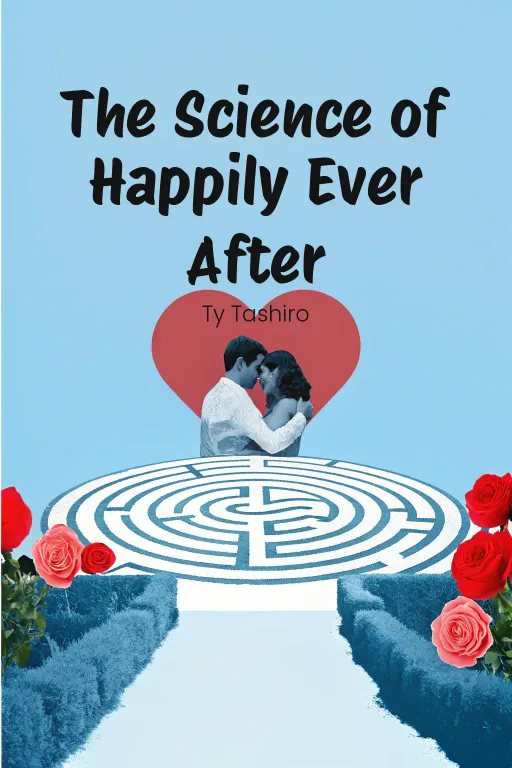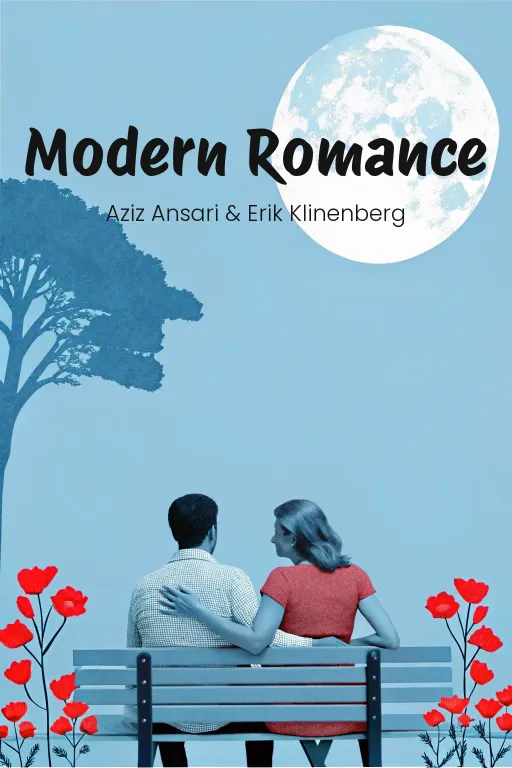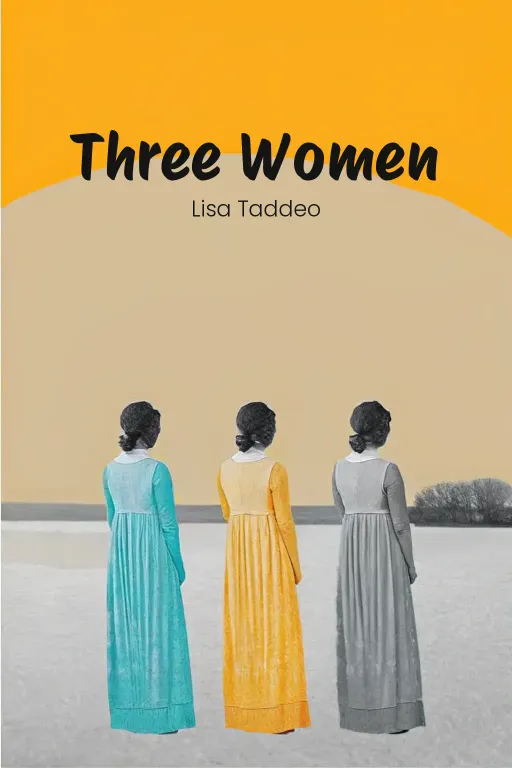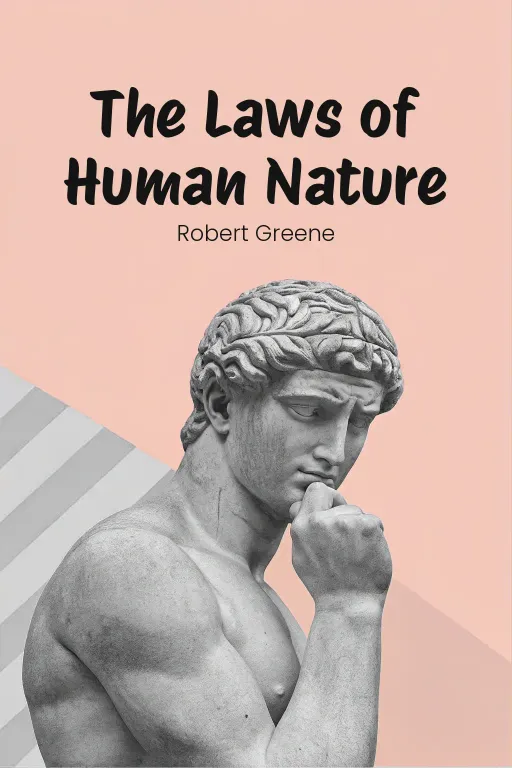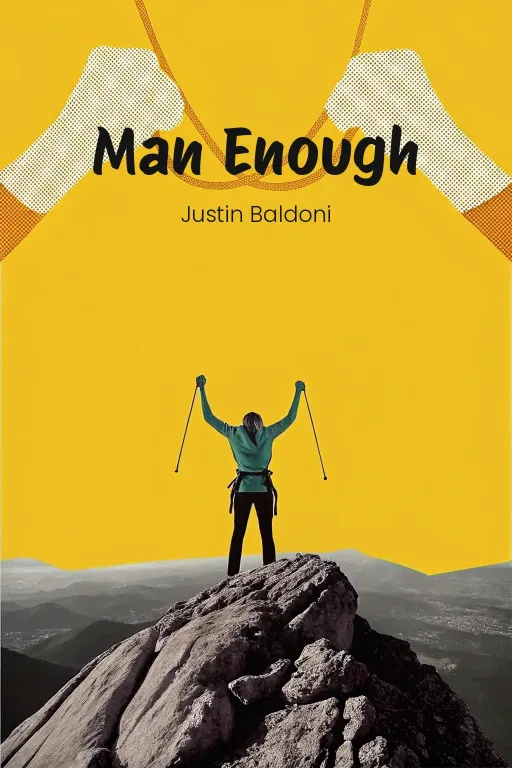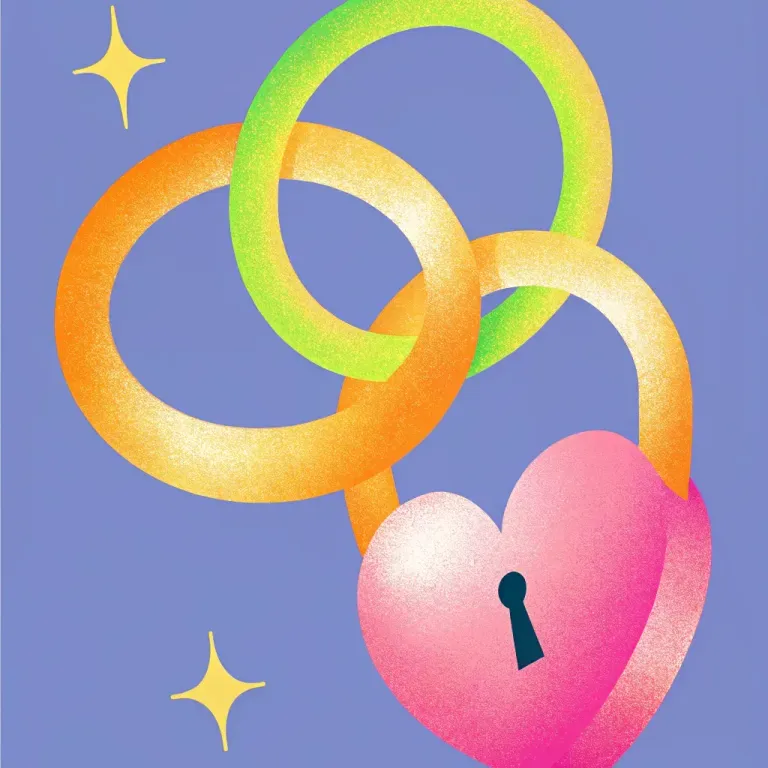
Love's Code: Science Hacks for Lasting Bonds
Podcast by The Mindful Minute with Autumn and Rachel
What Really Matters in the Quest for Enduring Love
Introduction
Part 1
Autumn: Hey everyone, welcome back to the show! Today, we're tackling something that's both universal and, let's face it, totally confusing: love. Why is it so darn hard to find, and even harder to keep? If you've ever swiped left, swiped right, gone on a string of dates, or found yourself thinking, "Ugh, not this again," you're definitely in the right place. Rachel: Okay, Autumn, I'm intrigued, but also a bit skeptical. Are you telling me that science is here to rescue us from our own terrible romantic choices? Because, honestly, can you really apply scientific principles to something as… messy as love? Autumn: Well, hold on to your hat, Rachel! Because yes, actually. Ty Tashiro's book, The Science of Happily Ever After, is basically a love life game-changer. He pulls together decades of research to explain why modern relationships can be so challenging, where we typically screw up when choosing partners—guilty as charged on obsessing over the wrong things—and, most importantly, how we can actually make better choices by focusing on the traits that lead to long-term happiness. Rachel: So, it’s like… a user manual for avoiding relationship disasters? Or at the very least, a guide to stop us from tripping over the same mistakes repeatedly. I can definitely get behind that. Autumn: Precisely! And today, we're going to break it down into three key parts. First, we'll explore the science behind choosing the right partner—because, let’s be real, we often get distracted by superficial qualities. Next, we’ll look at how to actually navigate the real dynamics of a relationship—spoiler alert: it's not all rom-com clichés and fairytale endings. And finally, we’ll cover the specific steps you can take to build a love that stands the test of time—think of it as your ultimate relationship roadmap. Rachel: Science, strategy, and a healthy dose of reality? Alright, I'm in. Let's get to it.
The Science of Partner Selection
Part 2
Autumn: Exactly, Rachel. And hey, it's not entirely your fault, okay? Evolution kind of wired us this way. Things like physical attractiveness, they subconsciously signal health and, you know, fertility. And wealth? Well, that screams resources and survival. But here's the thing—those flashy traits might grab your attention initially, but they rarely sustain a relationship in the long run. Once the initial excitement fades, those things lose their shine if you don't have a deeper connection on a psychological level. That's where the Big Five personality traits—openness, conscientiousness, extraversion, agreeableness, and neuroticism—really come into play. Rachel: So, you're suggesting dating apps should start sorting people by, like, "agreeableness" instead of abs? I'm all for it, but, uh, maybe break down these Big Five traits a bit for me? What are we actually looking for here? Autumn: Okay, so let’s zoom in on agreeableness and neuroticism, since they have a huge impact on relationship health. Agreeableness is all about offering emotional support, being kind, and working together. It's about being a good teammate. Now, compare that to neuroticism, which is basically emotional instability. If you're high in neuroticism, you might struggle with stress, have crazy mood swings, and find yourself in conflict more often. Rachel: So, one person's the solid, dependable rock, and the other is... a chaotic tornado? Doesn't really sound like a recipe for a happy life. Autumn: Right? And Grant’s story in the book is a classic example. Super smart guy, but he was dealing with some unresolved grief after his mother passed, which made him emotionally unstable. That high neuroticism messed up his early relationships until he went to therapy. By understanding himself better, he realized how much he needed someone kind and patient—like Emma—to balance him out. It really highlights how mutual support is vital for a solid, meaningful relationship. Rachel: I like that. And speaking of solid foundations, let's dive into attachment styles. Because if I'm getting this right, whether we're secure, anxious, or avoidant comes down to how we learned to love way back in childhood? Autumn: Exactly! John Bowlby’s attachment theory basically says that our early interactions with caregivers create the blueprint for how we connect with others later in life. Secure people had caregivers who were consistently there for them, so they find it easy to trust and be intimate. Anxious people? Maybe their caregivers weren't always consistent, so they're often afraid of being abandoned and constantly need reassurance. And avoidant folks probably had caregivers who were emotionally distant, so they learned to rely only on themselves and avoid becoming too dependent on others. Rachel: So, in other words: chill, clingy, or aloof. Got it. But how does this actually play out in relationships? Can someone anxious and someone avoidant even function together, or is that a disaster waiting to happen? Autumn: It can definitely be challenging, no doubt about that. The book talks about how mismatched attachment styles can create like, a 'push-pull' situation. The anxious partner wants closeness, while the avoidant partner pulls away, which just makes the anxious partner feel even more rejected. But there's hope! Secure attachment styles, kind of like Emma, you know, in the book, can really help to balance that out. When Grant felt insecure, Emma's patience and emotional availability gave him a safe space to grow and feel more secure over time. Rachel: So, a secure partner is like the anchor in a relationship—keeping things from totally going off the rails. But, uh, let's not ignore societal pressures here. I mean, everyone's bombarded with the idea that their dream partner should look like a movie star and have the bank account of a hedge fund manager. Autumn: Oh, for sure! That's a huge problem. We're taught to chase this ideal that's shaped by the media, which usually focuses on totally superficial things. Research always shows that looks or wealth really don't have much to do with long-term happiness. In the book, the 2008 speed dating study shows that initial attraction is based on looks, but emotional depth is what makes someone worth a second or third date. Rachel: So, swiping through dating apps based on a single picture is probably “not” the most efficient strategy. But how do we, like, rewire ourselves to prioritize the deeper traits that science says actually matter? Autumn: Well, that all comes down to being intentional. The book offers three steps: reflection, defining your values, and actually matching your actions to your priorities. First, think about your past relationships. What patterns kept popping up? What qualities were missing? Then, figure out what really matters to you. Is it emotional intelligence? Reliability? Maybe a shared love of learning? And then start aligning your dating habits with those values. So, if empathy is a must-have, maybe try meeting people in places that foster meaningful interaction, like a volunteering event or a professional networking thing. You know? Rachel: So, instead of the loud club scene on a Saturday night, you're suggesting the public library or a community garden? Autumn: Exactly! Find environments where real interactions happen organically. This kind of shifts the focus from creating a performative first impression to just genuinely connecting with people. And once you ditch the idea of finding "The One"—or this idea of perfect compatibility—then it's less about "stumbling" across the ideal partner and more about building a partnership with someone who shares your vision for where you want to go. Rachel: Which is exactly why having a "relationship as a journey" mindset leads to more long-term happiness, right? Like Grant and Emma—it wasn't just about finding each other, but about putting in work to grow together and get through all the inevitable rough patches. Autumn: You nailed it. Grant and Emma's story shows that relationships aren't constant; they're dynamic and need continuous effort. The myth that things should be easy and just magically "click" sets us up for disappointment. What makes love last isn't about being perfect, but about adaptability, teamwork, and growing together. Rachel: And, you know, on that note, I think I'm finally figuring out why that terrible date who loved bragging about her cars wasn't "the one". Time to, uh, rethink my checklist, I guess.
Navigating Relationship Dynamics
Part 3
Autumn: So, understanding these basic elements really helps us spot and steer clear of common relationship traps. Now that we've talked about picking the right partner, let's get into the real nitty-gritty: how to actually navigate the relationship day-to-day. This builds on what we discussed about choosing a partner, offering, you know, some real-world ways to boost your relationship's health and keep it strong. Rachel: “Navigating relationship dynamics”... Right, sounds like code for "how to survive without wanting to smother each other with a pillow." So, do we start with the basics, like who texts first after a fight, or are we diving straight into the deep end of psychological baggage? Autumn: A little of both, actually. Strong relationships are all about spotting patterns in how you and your partner interact, so you can handle issues before they blow up. The book talks about the "demand-withdraw" pattern, which is a classic. It's where one person is always pushing for more connection or change, and the other just clams up or avoids the topic altogether. Sound familiar at all? Rachel: Oh, does it ever. Sounds like a guaranteed ticket to fights about, I don’t know, whose turn it is to do the dishes. What makes this pattern so common, though? Is it just a natural human reaction to confrontation? Autumn: Pretty much. It all comes down to our stress responses. The person demanding feels a sense of urgency, like an emotional need isn’t being met, so they push harder. Meanwhile, the withdrawing person feels overwhelmed and just wants to avoid more stress, which, of course, only makes the first person even more frustrated. It’s a real cycle. And studies show it's super damaging over time. Heavey and Gottman's research found that it really kills satisfaction and leads to emotional disconnection. Rachel: Right, so how do you actually break something like that? Seems like both people are just stuck—one yelling, the other hiding under a blanket. Autumn: Well, breaking the cycle means both partners have to find some middle ground. For starters, communication has to shift away from blaming. The demanding partner needs to focus on expressing how they feel using "I" statements instead of accusations, like "I feel anxious when we don't discuss our plans," instead of "You never listen!" That alone can dial down the defensiveness. Rachel: So, shouting "You’re impossible" isn't effective? Got it. Autumn: Exactly! The withdrawing partner, on the other hand, needs to actually engage in the conversation instead of shutting down. That means actively listening—really hearing what the other person is saying, instead of just planning your counterattack. And it doesn't have to be spontaneous. Scheduling regular check-ins can be a game-changer—setting aside time to calmly talk things through before they blow up. Rachel: I like the sound of check-ins – like a preventative maintenance plan for relationships. But what if a couple is so deep in this pattern they can’t break free on their own? Are they doomed, or is that where a therapist walks in? Autumn: Therapy is often the best bet. Techniques like Emotionally Focused Therapy, or EFT, focus on bringing those underlying vulnerabilities to the surface so couples can tackle the real emotional roots of their issues. Instead of just patching up individual fights, EFT helps partners reconnect on a deeper level, turning conflict into a chance for growth. Rachel: Okay, that’s conflict management covered. But what about the good stuff? You know, those warm, fuzzy moments that make it all worthwhile. What’s the science behind keeping those alive? Autumn: That's where capitalization comes in. It's all about how couples respond to good news. Shelly Gable's research shows it can either strengthen or break those emotional bonds. If your partner shares something great, like getting a promotion, how you react is key. Active-constructive responses, like getting genuinely excited—"That's amazing! We have to celebrate!"—bring you closer. Rachel: And then there's the passive "Oh, cool" or, worse, "Didn't you want a higher-level position anyway?" That's definitely not setting the stage for a romantic movie montage. Autumn: Exactly. Those negative reactions chip away at intimacy over time. You’re basically telling your partner their joy isn't important, which hurts trust. Building positive relationships means really embracing those shared successes and turning them into moments of connection. Rachel: OK, so share good news, celebrate enthusiastically, and maybe hold off on playing devil's advocate for a bit. But let’s pivot back to how couples actually talk to each other – not just about the big wins, but in everyday interactions. What sets the successful couples apart? Autumn: A lot of it boils down to how couples handle what Gottman calls "bids for connection." These are the small, everyday moments where one partner reaches out emotionally, like sharing a funny story or asking for advice. Healthy couples consistently "turn toward" these bids, engaging with warmth and interest. That builds trust over time. The problem comes when bids are ignored or dismissed, which can signal emotional unavailability. Rachel: So, if someone's telling you about some weirdly entertaining cat video, you shouldn’t just grunt in response. Note to self: Engage, Autumn's style. Autumn: That's the spirit! And don’t forget about framing criticism positively. For example, instead of saying, “You never help around the house,” try, “I feel really supported when we work on chores together.” It focuses on collaboration instead of blame, so the conversation stays constructive. Rachel: Okay, so between fighting fair, celebrating wins, and being tech support for your partner's emotional needs, it’s clear that love is, well, work. But productive work—it’s like making ongoing deposits into your relationship bank account. Autumn: That’s a great way to put it. By spotting those harmful patterns and intentionally creating positive interactions, you’re really setting the stage for a relationship that’s not just stable, but also deeply fulfilling.
Cultivating Lasting Love
Part 4
Autumn: So, with these tools in hand, we're really turning our attention to the long game, right? How do we cultivate love that lasts? We've talked about choosing the right partner and navigating the daily stuff. Now it’s time to zoom out: How do we keep that flame burning through life’s ups and downs? Rachel: Ah, so we’re graduating from picking the best ingredients—you know, someone who doesn't squeeze the toothpaste tube from the middle—to actually cooking a Michelin-star meal? Sounds like a tall order. Where do we even begin with that? Autumn: It starts with a solid foundation: setting clear relationship goals. Think about it: Most people enter relationships with, like, a vague hope for happiness, but no real plan. They want someone "kind" or "funny," but how often do they actually define the values that make a partnership thrive long-term? Rachel: You mean, instead of just hoping that "likes the same memes" is enough to sustain us? Okay, I'm intrigued. What's the, shall we say, “scientific” way to map out these relationship goals? Autumn: It’s about shifting from surface-level attractions to the qualities that truly matter for lasting happiness. In the book, Tashiro uses something like behavioral activation to explain this. It’s not just saying, "I want an empathetic partner"; it’s actively creating patterns to attract those traits. First, reflect on what went wrong in past relationships. What traits or habits consistently led to unhappiness? Rachel: A little relational archaeology! Sounds productive, even if it might unearth some painful stuff. Autumn: It can be. Let’s say someone realizes they kept dating emotionally distant people because they mistook aloofness for confidence. Recognizing that mistake allows them to prioritize emotional availability going forward. Then, they define their must-have traits—like kindness, stability, shared goals—and align their actions accordingly. That might mean, say, spending time in places where emotionally intelligent people hang out, like book clubs or volunteer events. Rachel: So less about swiping right on a dating app and more like strategically positioning yourself where the odds of finding someone who shares your values increase. Makes sense in theory. But what about the classic fallback? You know, "Oh, things will magically fall into place once we get married or have kids"? Autumn: That’s one of the biggest myths Tashiro debunks! The idea that major life changes somehow transform core behaviors. They don’t. Actually, they tend to amplify the personality traits that were already there. Rachel: Let me guess, this is where you hit me with a cautionary tale? Autumn: Perhaps! Take Dan and Elyse from the book. Dan was initially drawn to Elyse’s playful teasing, but over time, her humor started feeling mean. He assumed getting more serious—moving in, marriage—would smooth those edges. It didn't. It just highlighted the incompatibility. Dan felt her behavior chipped away at his emotional safety, and the relationship became unsustainable. Rachel: So, the moral of the story is, don't expect a ring or a mortgage to magically fix personality clashes. Got it. Autumn: Exactly. These transitions aren’t solutions—they're mirrors. They magnify who we are and where we stand as a couple. People need to proactively address those issues early on, rather than hoping major events will fix them. Rachel: Which I guess is where self-awareness comes in, right? Not just in identifying partner traits, but also our own blind spots. Because let's be honest, we're great at spotting flaws in others, but ourselves? Not so much. Autumn: Exactly! Self-awareness is key. Knowing your attachment style, your emotional triggers, and your communication patterns helps you navigate challenges. For example, if someone values open communication but struggles with vulnerability, acknowledging that shortfall lets them take intentional steps toward practicing emotional openness. It’s about staying true to your values while committing to growth. Rachel: Alright, self-awareness: check! But how do you keep things from, you know, stagnating once you've got that down? People change, life throws curveballs—how do you adapt without losing those shared values? Autumn: That’s where continuous growth comes in. Love is a journey—not a one-time agreement you put on autopilot. One great way to stay connected is by sharing new experiences together. Whether it’s travel, learning a new skill together, or just finding humor in the everyday chaos, those shared efforts keep the relationship evolving. Rachel: Kind of like Ethan and Catherine in the book, right? They had different personalities—he was impulsive, she was super-organized—but instead of fighting, they found ways to complement each other. Autumn: Exactly. Catherine saw Ethan’s impulsiveness as something to channel—not eliminate—and encouraged him towards constructive adventures, like travel. Ethan, in turn, valued Catherine’s structure and supported her by respecting her routines. Their mutual effort to adapt to each other's needs and differences strengthened their relationship over decades. Rachel: So working through differences isn't just about survival; it's how you deepen the connection itself. Got it. But how do you “know” if it's actually working? Is it just a feeling, or can you, like, measure it? Autumn: There's definitely intuition involved, but research shows there are measurable behaviors that signal relational health. For instance, consistent expressions of gratitude and appreciation show both partners feel valued. Celebrating each other’s wins—big or small—strengthens bonds, too. That’s capitalization in action, turning positive moments into shared joy that reinforces the connection. Rachel: Okay, so lasting love comes down to self-awareness, shared effort, and remembering to celebrate the small victories. Sounds like a lot, but I guess all the best things in life are.
Conclusion
Part 5
Autumn: Okay, so let’s quickly recap what we’ve covered so far. We talked about the science behind choosing a partner, really focusing on the qualities that matter in the long run—things like kindness, empathy, and just general emotional stability—instead of getting hung up on the superficial stuff. We also dug into relationship dynamics, highlighting those not-so-great patterns, like the demand-withdraw cycle, and how crucial it is to recognize when someone’s trying to connect with you. And finally, we learned that creating a lasting, loving relationship takes self-awareness, a deliberate effort, and a commitment to growing—basically, bursting the bubble that a big life event can magically fix underlying issues. Rachel: So, if I'm hearing you right, the bottom line is that love isn't some accidental discovery that just…happens. It's not enough to just find someone. It's something you build, right? Deliberately, together, and, let’s be honest, with tons of patience. Whether you're looking at your own relationship patterns, making sure your values line up, or navigating disagreements, it seems like happy relationships require effort. But it sounds like you're saying that effort is worth it. Autumn: Exactly! I mean, that's what I think. So, here’s what we want listeners to do: whether you're single or in a relationship, just take a moment today to really think about what you want in a relationship. What qualities are really important to you—the qualities that reflect your core values and help you grow as a person? And, most importantly, start showing up in your relationships—any relationship—with intention and care. Rachel: Right, because ultimately, choosing and building love isn’t just about finding “the one,” is it? It’s about becoming the kind of person who's capable of building something that lasts, something truly meaningful, with someone who's a good fit for you. And that, is a science I think we can all embrace.
